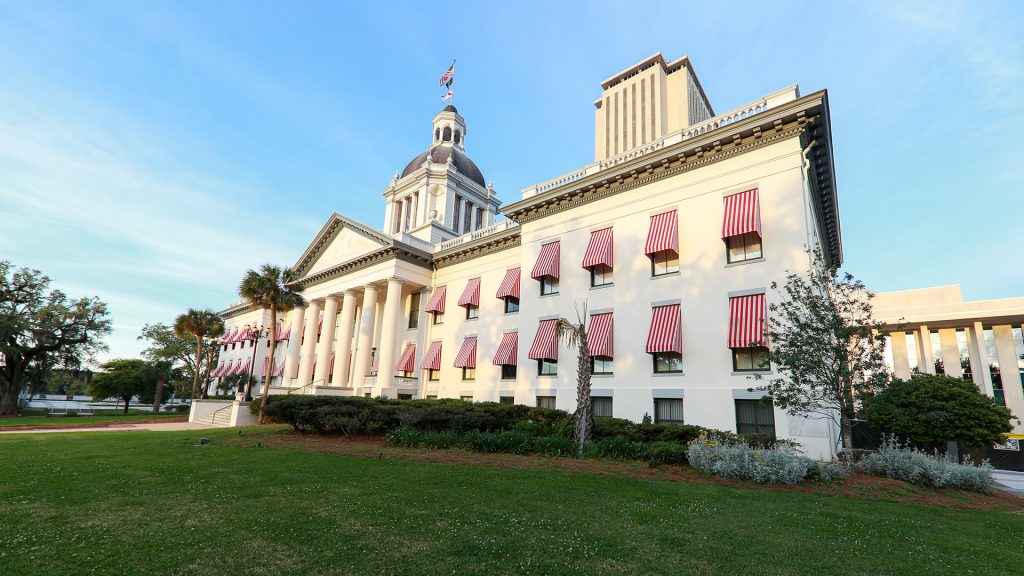Florida Senate committee approves bill relaxing child labor laws
Ella Greene March 26, 2025 0
- Florida’s Senate Committee on Commerce and Tourism approved a bill that relaxes child labor laws. The bill removes restrictions on 16- and 17-year-olds to work up to eight hours a day before 6:30 a.m. or after 11 p.m., even on school nights.
- It also removes mandated breaks for those working four continuous hours and eases restrictions for 14 and 15-year-olds with certain qualifications.
- Bill sponsor Sen. Jay Collins, R-Tampa, argues it supports parental rights and aligns with federal laws, while critics warn it could lead to exploitation.
Full Story
Florida’s Senate Committee on Commerce and Tourism approved a bill that would relax child labor laws in the state. Last year, the Florida Legislature passed a different bill that amended the child labor laws, and now, the Senate is looking to take it further.
The bill, SB 918, removes certain restrictions for 16- and 17-year-olds, allowing them to work eight hours a day before 6:30 a.m. or after 11 p.m., even on school days. The bill also removes mandated breaks for 16- and 17-year-olds who work four continuous hours.
Additionally, the bill removes the restriction on 14- and 15-year-olds who have received a high school equivalency diploma, are home-schooled, or are in public school and receive a certificate of exemption granted by the school superintendent or a parental designee.
The bill’s sponsor, Sen. Jay Collins, R-Tampa, says the bill stands up for parental rights.
“What I do believe we should do is stand up for parental rights and know that parents, which is the group that really can’t take care of their kids in this instance, doesn’t have the say of when they should work, how they should work –– we should let them say what’s best for their kids at 16 and 17 years old,” Collins said.
Critics, however, argue that this bill could lead to employers taking advantage of a vulnerable population.
“I understand the parental rights argument; however, usually, when you’re employed, these types of labor protections are what keep workers from being exploited by their employer. What protections would remain in your bill for a minor?” Sen. Carlos Guillermo Smith, D-Orlando, asked Collins.
Collins said that federal laws remain in place under the Fair Labor Standards Act (FLSA), which protects child workers.
The legislation has been covered as an attempt to increase available workers to supplant immigrants who Florida employers are no longer able to hire. Gov. DeSantis questioned in a panel discussion covered by the Tampa Bay Times why the state’s businesses need to import people from other countries when teenagers and college students should be able to take jobs such as working at a resort. Sen. Smith argues the minors are already allowed to work these jobs. Smith pointed to DeSantis’ comment to claim that the legislation was aimed at replacing lost immigrant labor with local residents.
Under the current FLSA, minors aged 16 and 17 may work up to 30 hours per week, but they cannot work before 6:30 a.m. or later than 11 p.m., and they cannot work more than eight hours when a school day follows. There are no restrictions when a school day does not follow.
Similarly, under FLSA, minors aged 14 and 15 may work up to 15 hours per week, not before 7 a.m. or after 7 p.m., not more than three hours on school days when a school day follows, and up to 8 hours on Friday, Saturday, and non-school days when school is not in session the following day.
“Nothing changes in that regard for the 14 or 15-year-olds unless they’ve graduated and don’t have the academic issues or concerns,” Collins said. “That stays the same. What we are doing is lining Florida up with federal law.”
Florida’s Senate panel approved the measure by a vote of 5-4. If enacted, the new laws would go into effect in July.
Related Stories
Ella Rae Greene, Editor In Chief
Ella Greene
Ella and the staff at Clear Media Project (CMP) curate these articles.
Unless otherwise noted CMP does not write these articles.
The views, thoughts, and opinions expressed in the articles published on this blog belong solely to the original authors and do not necessarily reflect the views of the blog owner. The blog owner does not claim ownership of the content shared by contributors and is not responsible for any inaccuracies, errors, or omissions.
All rights and credits goes to its rightful owners. No Copyright Infringement is intended. If you believe any content infringes on your rights, please contact us for review and potential removal.




